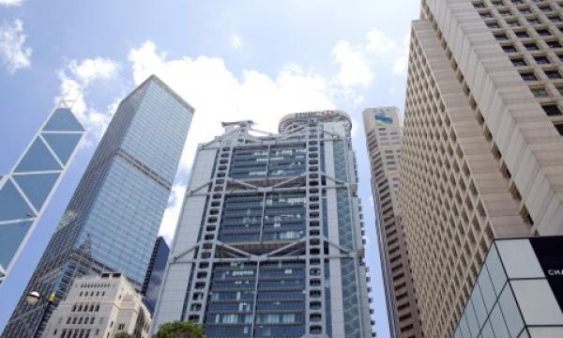
Hong Kong banks' loan growth to slow in the coming quarters
The weak housing market outlook is partly to blame.
Loan growth of Hong Kong commercial banks expanded strongly in the first seven months of 2017, trending higher to 16.2% y-o-y in July from 6.6% y-o-y at end-2016, which in BMI Research's view, reflected the robust economic growth in the Special Administrative Region (SAR) and mainland China during that period.
"We are raising our loan growth forecasts for 2017 and 2018 to 10.0% and 7.5%, respectively (from 5.5% and 5.0% previously), but our figures continue to reflect our expectations for a slowdown over the coming quarters."
Here's more from BMI Research:
House prices in Hong Kong continue to hit record highs, with residential mortgage lending growth also trending higher to 7.9% y-o-y in July, despite the Hong Kong Monetary Authority (HKMA)'s tightening measures on May 19. However, we continue to believe that property price gains in the city are increasingly unsustainable due to extremely poor affordability and rising interest rates.
According to Hong Kong's Rating and Valuation Department (RVD), the increases in residential property prices have started to trend lower on a m-o-m basis, decelerating to 0.1% in July from a high of 2.7% in April. On a y-o-y basis, price gains are still strong at 19.6% in July, but are showing signs of peaking.
A headwind facing Hong Kong's housing market over the coming quarters is rising interest rates as the US Federal Reserve continues on its rate hiking cycle, resulting in higher mortgage rates (linked to HIBOR rates) in the territory as the HKMA's interest rate policy is tied to the US due to its currency peg.
Our general outlook for the path of US rates is for 50bps worth of interest rate hikes in 2018 from the current target range of 1.00% to 1.25%. While rising interest rates are generally positive for the net interest margins of banks, mortgage lending will be negatively impacted as debt servicing costs rise, resulting in lower demand for houses and prices, which could eventually turn into a negative spiral as the housing market unwinds.






















 Advertise
Advertise








